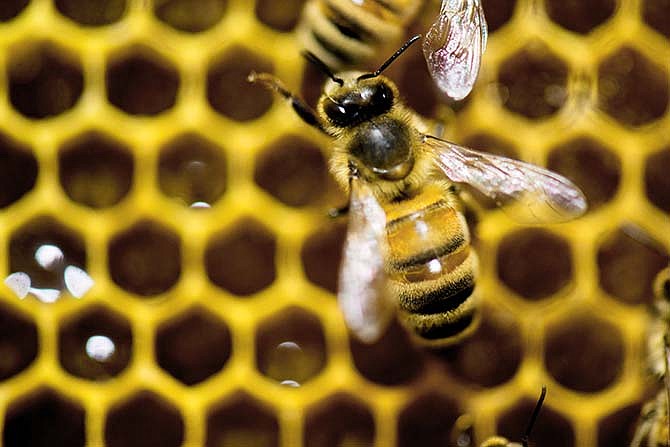A lack of experienced beekeepers led a former University of Missouri Extension instructor to develop a program to get more people involved.
Moneen Jones, who is from Parma Missouri's Bootheel, is the director of the Midwest Master Beekeeper Certification Program.
"For the past decade, new individuals embark on learning this new hobby of beekeeping only to quit after two years," she said. "As the demographics of beekeepers age (average age of experienced beekeeper is in their late 60s and 70s), you see the loss of that knowledge as well. This program was developed to usher in new people interested in learning about beekeeping and to retain the ones that are currently learning the trade."
Jones said beekeeping has become popular since people see they can earn money from beekeeping products or by selling bees because there is a large market for natural products.
Beekeepers and entomologists with decades of experience developed the Midwest Master Beekeeper Program two and a half years ago. The idea was to develop a standardized program more comprehensive than regular beekeeping classes, Jones said. Topics include taxonomy, biology, botany, genetics, pesticides, diseases, pests and economics.
"We offer the first three level classes to the general public who want to learn more about bees and pollinators," Jones said. "In fact, one of the requirements of working with the Missouri Conservation Heritage Foundation was to expand our curriculum to more locations, such as libraries, community centers, community colleges and nature centers. We are also working with Missouri FFA officers to fundraise for local high schools by selling pollinator seeds. We are working on expanding pollinator habitat of each participating state by 20 percent over the next 10 years."
They are teaching courses in Missouri, Arkansas, Illinois, Kansas, Oklahoma, Iowa and Kentucky, Jones said.
Each course is 4 hours long and taught by experienced beekeepers. More than 500 people attended the first level class last year. The goal is to teach a five-year program.
With each level, the material is discussed in more detail. For example, a participant will learn about integrated pest management in the first class and economic thresholds in the second. The third class will further discuss the importance of figuring cost analyses for becoming a successful honey producer.
"We promote the joining of local beekeeping associations and finding a mentor," Jones said. "In fact, they are requirements of our program, if you decide to join the certification program. You learn your hands-on practice through these local associations, and we supply a list of them for you to choose. We also give you a list of beekeeping equipment suppliers."
A list of participating locations is available online at mochf.org/masterbeekeeper/calendar. Classes also are posted on the Midwest Master Beekeeper Program Facebook page.
For more information, contact Jones at [email protected] or 573-281-1272.

